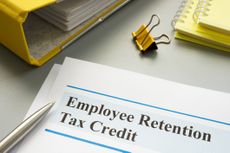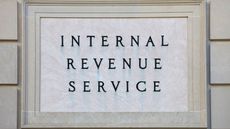Free IRS Direct File Pilot Program: Who's Eligible?
The IRS is piloting a free direct file program, but not all taxpayers can use it right away.


The IRS is launching its free Direct File pilot program for the 2024 tax filing season (2023 tax returns). The program will initially be limited to a select group of taxpayers in 12 states. But the IRS plans to extend the pilot's availability to more taxpayers in those states by mid-March before 2023 federal tax returns are due.
If successful, the IRS Direct File program could rival current tax preparation companies, including Intuit TurboTax and H&R Block.
So, who can use the IRS' new pilot program? Here's what you need to know.

Sign up for Kiplinger’s Free E-Newsletters
Profit and prosper with the best of expert advice on investing, taxes, retirement, personal finance and more - straight to your e-mail.
Profit and prosper with the best of expert advice - straight to your e-mail.
More: Will an IRS Tax Prep Service Replace TurboTax or H&R Block?
IRS Direct File pilot eligibility
The Direct File pilot program is set to roll out in phases. When the program launches on Jan. 29, 2024, it will only be available to eligible government and state employees in 12 states.
California, New York, Massachusetts, and Arizona have agreed to participate in the IRS’ Direct File pilot program. (Taxpayers participating in the pilot would essentially export their data to a companion tool allowing them to file their state returns.)
Despite not having a personal state income tax, Washington has opted to participate in the pilot by integrating its Working Families Tax Credit application. Eligible taxpayers in the following states would also qualify to participate in the program.
- Florida
- Nevada
- New Hampshire
- South Dakota
- Tennessee
- Texas
- Wyoming.
The IRS plans to offer the program to some private sector workers in the above states by mid-march of this year.
For the 2024 pilot, Direct File is not an option for filing all 2023 tax returns.
- You cannot use Direct File if you have gig economy or business income.
- You must take the standard deduction to use Direct File.
- The pilot program is not available for taxpayers who claim the Saver's Credit or the Premium Tax Credit.
Different from IRS Free File
The IRS Direct File pilot isn’t the same as the agency’s existing Free File program. (The IRS Free File Program is a public-private partnership between the IRS and several tax preparation and filing software industry companies.)
For example, while also free and offered online, IRS Free File is only available to taxpayers with an adjusted gross income (AGI) of $79,000 or less. (Whereas, eligibility for the Direct File program won’t be based on income.) Additionally, with Free File, taxpayers prepare and file their taxes with one of the IRS’ participating partners. Direct File will allow taxpayers to file their federal returns directly with the IRS.
Not everyone supports the IRS's new move into direct tax preparation and filing. A group of Republican Attorneys Generals voiced their opposition to the pilot in a letter to the Treasury Secretary Janet Yellen last month. However, this pushback has not delayed the pilot's launch.
Following the completion of the Direct File pilot, the IRS will evaluate the program's functionality, including the state integration component. The agency has said it plans to publicly share the pilot results.
Related Content
- Will an IRS Tax Prep Service Replace H&R Block or TurboTax?
- FTC: Intuit TurboTax Free Filing Ads Are Deceptive
- From Chatbots to Audits: How the IRS Will Use AI This Tax Season

Katelyn has more than 6 years’ experience working in tax and finance. While she specializes in tax content, Katelyn has also written for digital publications on topics including insurance, retirement and financial planning and has had financial advice commissioned by national print publications. She believes that knowledge is the key to success and enjoys helping others reach their goals by providing content that educates and informs.
-
 How To Spring Clean Your Portfolio
How To Spring Clean Your PortfolioRegular purges of closets help us clear out what's not working, and the same should be done for our investments. Here's how to spring clean your portfolio.
By Coryanne Hicks Published
-
 Nine of the Biggest Regrets I See as a Financial Planner
Nine of the Biggest Regrets I See as a Financial PlannerCheck out this list of common regrets among older people and see if there’s something you can address in your own life while there’s still time.
By Andrew Rosen, CFP®, CEP Published
-
 Is the IRS Waiving Your Back Tax Penalties?
Is the IRS Waiving Your Back Tax Penalties?Tax Relief The IRS is waiving penalties for nearly $1 billion in back taxes owed during the pandemic. Are you eligible?
By Kelley R. Taylor Last updated
-
 Time to Act on These End-of-Year Tax Planning Tips: Tax Letter
Time to Act on These End-of-Year Tax Planning Tips: Tax LetterTax Letter With a short time left before 2023 comes to a close, tax planning is all-important. Here are some areas to focus on.
By Joy Taylor Last updated
-
 You May Have to Put Catch-Up Contributions in a Roth 401(k): That's Not a Bad Idea
You May Have to Put Catch-Up Contributions in a Roth 401(k): That's Not a Bad IdeaRoth 401(k) High earners will be required to put their catch-up contributions in a Roth 401(k).
By Sandra Block Published
-
 Can You Withdraw or Repay Your ERC Claim?
Can You Withdraw or Repay Your ERC Claim?Tax Credits The IRS says certain businesses can withdraw or repay potentially fraudulent employee retention tax credit claims.
By Katelyn Washington Last updated
-
 Five Tax Breaks for Paying Your Student Loan
Five Tax Breaks for Paying Your Student LoanTax Letter After a three-year pause, student loan payments have resumed, putting a dent in people's wallets. But there are some tax breaks that can help.
By Joy Taylor Published
-
 From Chatbots to Audits: How the IRS Will Use AI This Tax Season
From Chatbots to Audits: How the IRS Will Use AI This Tax SeasonIRS The IRS has plans to increase its use of AI. Here’s how the agency will do it and what it could mean for taxpayers.
By Katelyn Washington Published
-
 Tax Relief Following State of Israel Terrorist Attacks
Tax Relief Following State of Israel Terrorist AttacksIRS Relief Taxpayers impacted by terrorist attacks on the State of Israel have extended tax filing and payment deadlines.
By Katelyn Washington Published
-
 Two Supreme Court Cases Could Change the Tax Landscape: Kiplinger Tax Letter
Two Supreme Court Cases Could Change the Tax Landscape: Kiplinger Tax LetterKiplinger Tax Letter The Supreme Court’s new term started October 2. There are some interesting cases on its docket. Two could majorly change the tax landscape.
By Joy Taylor Published









